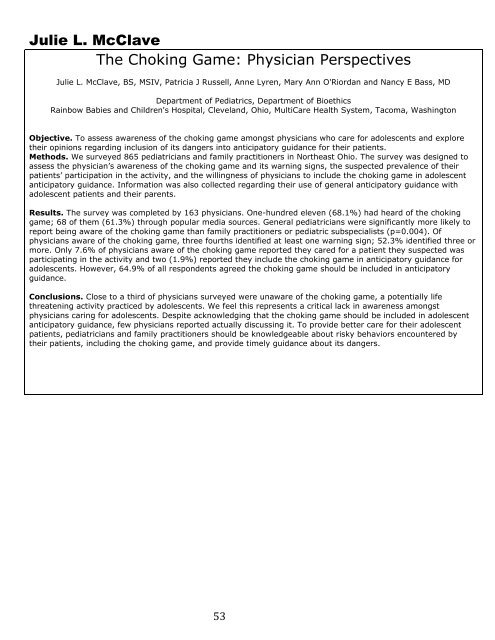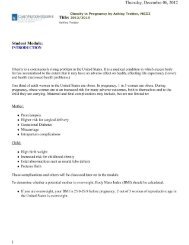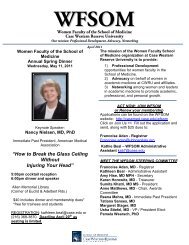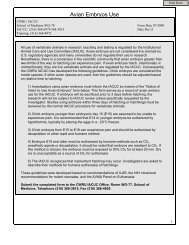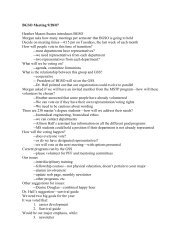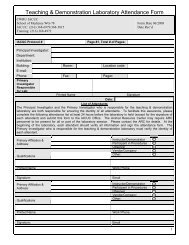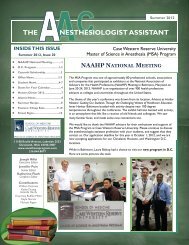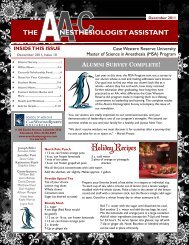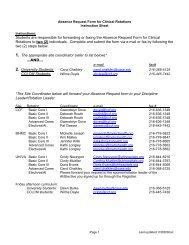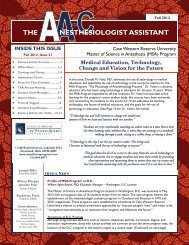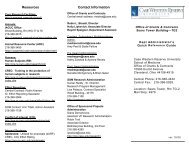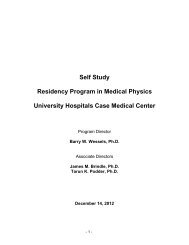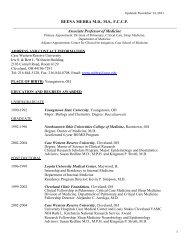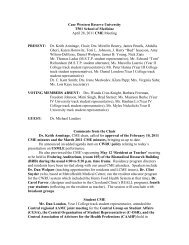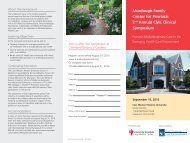student research day - Case Western Reserve University School of ...
student research day - Case Western Reserve University School of ...
student research day - Case Western Reserve University School of ...
You also want an ePaper? Increase the reach of your titles
YUMPU automatically turns print PDFs into web optimized ePapers that Google loves.
Julie L. McClave<br />
The Choking Game: Physician Perspectives<br />
Julie L. McClave, BS, MSIV, Patricia J Russell, Anne Lyren, Mary Ann O'Riordan and Nancy E Bass, MD<br />
Department <strong>of</strong> Pediatrics, Department <strong>of</strong> Bioethics<br />
Rainbow Babies and Children's Hospital, Cleveland, Ohio, MultiCare Health System, Tacoma, Washington<br />
Objective. To assess awareness <strong>of</strong> the choking game amongst physicians who care for adolescents and explore<br />
their opinions regarding inclusion <strong>of</strong> its dangers into anticipatory guidance for their patients.<br />
Methods. We surveyed 865 pediatricians and family practitioners in Northeast Ohio. The survey was designed to<br />
assess the physician’s awareness <strong>of</strong> the choking game and its warning signs, the suspected prevalence <strong>of</strong> their<br />
patients’ participation in the activity, and the willingness <strong>of</strong> physicians to include the choking game in adolescent<br />
anticipatory guidance. Information was also collected regarding their use <strong>of</strong> general anticipatory guidance with<br />
adolescent patients and their parents.<br />
Results. The survey was completed by 163 physicians. One-hundred eleven (68.1%) had heard <strong>of</strong> the choking<br />
game; 68 <strong>of</strong> them (61.3%) through popular media sources. General pediatricians were significantly more likely to<br />
report being aware <strong>of</strong> the choking game than family practitioners or pediatric subspecialists (p=0.004). Of<br />
physicians aware <strong>of</strong> the choking game, three fourths identified at least one warning sign; 52.3% identified three or<br />
more. Only 7.6% <strong>of</strong> physicians aware <strong>of</strong> the choking game reported they cared for a patient they suspected was<br />
participating in the activity and two (1.9%) reported they include the choking game in anticipatory guidance for<br />
adolescents. However, 64.9% <strong>of</strong> all respondents agreed the choking game should be included in anticipatory<br />
guidance.<br />
Conclusions. Close to a third <strong>of</strong> physicians surveyed were unaware <strong>of</strong> the choking game, a potentially life<br />
threatening activity practiced by adolescents. We feel this represents a critical lack in awareness amongst<br />
physicians caring for adolescents. Despite acknowledging that the choking game should be included in adolescent<br />
anticipatory guidance, few physicians reported actually discussing it. To provide better care for their adolescent<br />
patients, pediatricians and family practitioners should be knowledgeable about risky behaviors encountered by<br />
their patients, including the choking game, and provide timely guidance about its dangers.<br />
53


